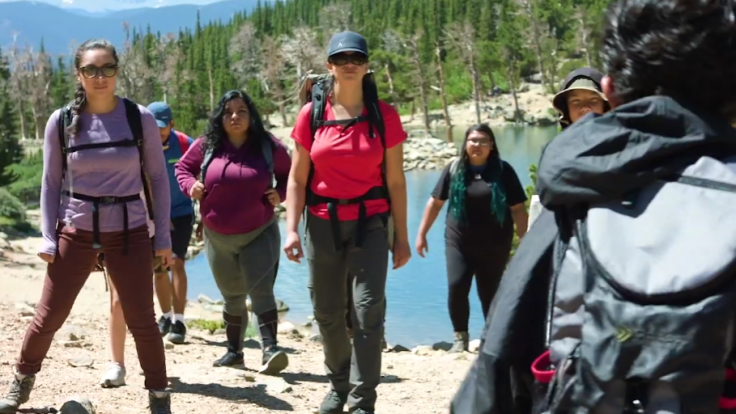
Hispanic Access Foundation released its new short film "I Am Cheo," which explores the intersection of Latino culture and communities with the outdoors and climate issues, like wildfires, and emphasizes the need for engagement and action to preserve our future.
Inspired by the poem "I Am Joaquin" by Chicano poet Corky Gonzales, this unique film tells the story of a young boy named Cheo who, from the sights and smells of his
abuela's kitchen, takes a sweeping cinematic journey across the lands that are both his history and his future. On this journey, Cheo realizes that
he is formed by these places - but they need his help, as they
are devastated by wildfires, pollution, climate change and disrepair. Cheo then explores how he can take action to protect the environment for his
familia and generations to come.
"This film expands the narrative of what it means to engage Latino communities, to encourage the understanding of the importance of
familia, community, faith
y
cultura in our efforts to improve our society and protect our environment for future generations," said Maite Arce, president and CEO of HAF. "It is also critical that we recognize the exclusion of communities in the processes of planning for, responding to and recovering from these adverse effects, but also recognize the contributions of these resilient communities to our country and the ambition and commitment to take action to address these urgent matters."
Our nation's greenhouse gas emissions and resulting climate change are leading to higher temperatures, record-setting heat waves, and drier and more arid conditions in the West. These conditions matched with
underfunded forest management, outdated land use policies and practices, and more people living in fire-prone areas has led to catastrophic wildfires that
affect more people. These conditions
are having severe consequences on communities, most significantly marginalized and vulnerable communities, such as low-income, disabled, elderly and communities of color.
"Our world is getting hotter, our oceans and coral reefs are degrading, our snowpack and rivers are diminishing and by underfunding forest management and mismanaging urban development we are putting people in harm's way of devastating fires and ill-equipping them to prepare for or adapt to such a life with fires," said Chela Garcia, HAF's director of conservation programs. "Because of socioeconomic factors, Latinos are
particularly vulnerable to the lack of adequate planning and resources for emergency management, urban planning, forest management, and disaster relief and recovery programs."
"
All efforts to address climate change and the resulting and exacerbated impacts are urgently needed," Garcia added. Multiple screenings are being held throughout the nation
in conjunction with community roundtable discussions. Film screening sponsors include Southern California Edison, National Parks Conservation Association, Save the Redwoods League, Environmental Defense Fund, The Wilderness Society, Audubon, and The North Face.
© 2025 Latin Times. All rights reserved. Do not reproduce without permission.






